Incat Crowther announced earlier today the launch of Twin City Liner, a 39m low wash, high-speed catamaran ferry for operation by Twin City Liner on the Danube River between Vienna and Bratislava. The vessel was built by Wight Shipyard, with local support from Incat Crowther Europe.
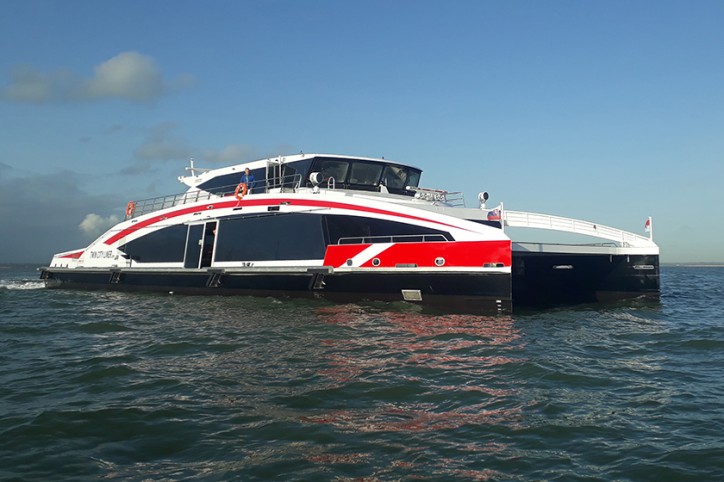
The vessel meets stringent design criteria for operation on the Danube. The design features a low draft of 0.8m, minimal wake / wash, low air draft and a hull form designed for restricted waters where high current and debris are encountered. A retractable mast facilitates navigation and radar functions whilst fitting under low bridges.
The CFD-optimized hull is highly efficient, giving the vessel a top speed of 40 knots and a reliable service speed of 32 knots at less than 70% MCR. The hull performs at level trim, affording maximum clearance under the keel for shallow areas of the river.
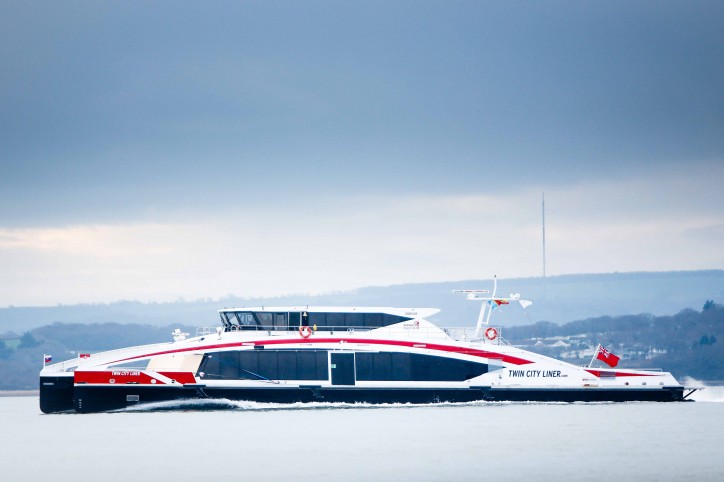
Passengers board Twin City Liner via midship doors port and starboard and enter a bright and airy main cabin with large windows, capable of seating up to 184 passengers. A kiosk providing a range of snacks and refreshments is provided aft on the starboard side. On the port side toilets are provided, one of which is for disabled customers.
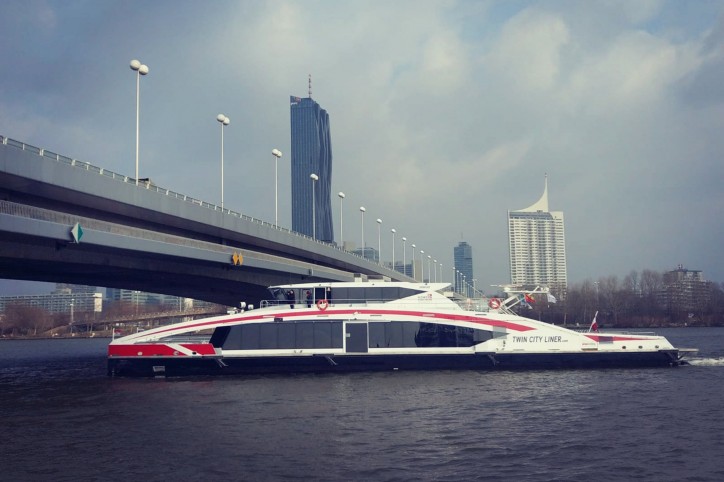
Above, the upper deck is accessed from a centre staircase in the main cabin as well as two staircases aft on the open deck. Interior seating is available for 35 passengers, whilst external seating is provided for 29 passengers. Being a commuter ferry as well as serving tourists, there will be space for 12 bikes on the aft deck. An extensive demisting system is fitted to windows to maintain clear view for passengers.
A specific anchoring system has been provided which may be used in very high current conditions. The anchors are stowed flush in custom pockets to prevent against external contact. Special consideration was made to the design of mooring and fendering systems to allow ease of docking in the narrow canals and high current of the Danube.
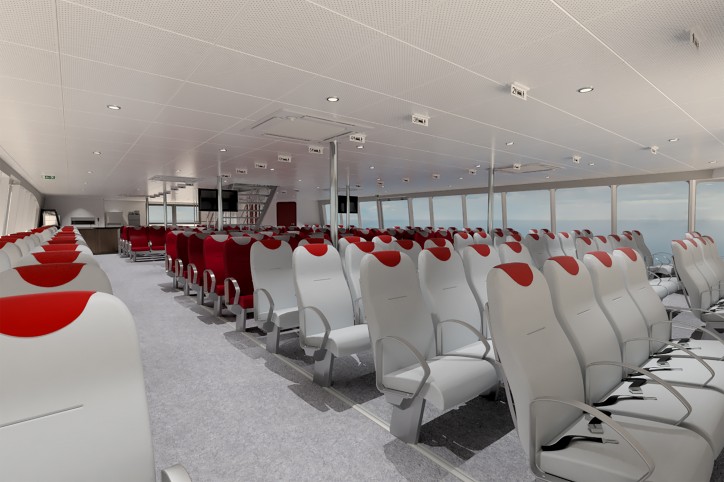
Twin City Liner’s structural design uses advanced engineering to reduce weight whilst remaining robust. This is matched with durable, lightweight systems and interior fitted by Wight Shipyard, with the vessel coming in under the target weight.
The vessel is powered by quad Scania DI16 main engines, each producing 809kW, driving Rolls Royce S40-3 water jets. The quad propulsion train was chosen for improved redundancy and reduced maintenance, by allowing the engines to run at low MCR. Large hatches over the main engines and gearboxes enhance maintenance access.
Incat Crowther’s global experience provides an in-depth understanding of the unique operating environment, balancing local flag state requirements, classification authority rules and EU directives.
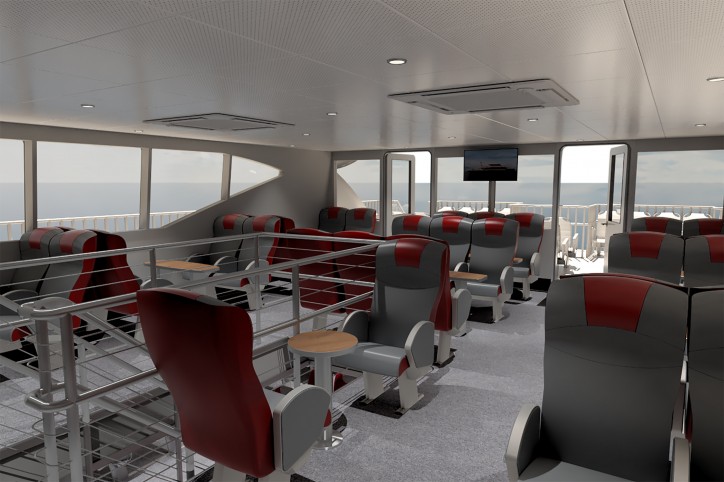
Source: Incat Crowther